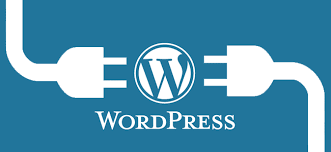The best practices for formidable WordPress website security
Launched in 2003, WordPress has become the largest content management system (CMS) in the world. Statistics show that almost 30% of the internet is driven by WordPress. Therefore, its popularity alone is enough to grab the attention of cyber attackers. As you already know, WordPress is an open source script, thereby an easy target for online perpetrators. Keeping these things in mind, it is vital not to take WordPress website security lightly.
WordPress is a secure platform, embraced by millions of websites worldwide. However, it doesn’t mean that your job as the WordPress site admin is over. Instead, it’s just getting started. More than 70% of the top 1 million WordPress sites were found to be vulnerable in 2013. As a result, instances of brute-force attacks and botnet attacks are familiar territory for WordPress websites. Here are 9 of the best WordPress security practices suggested by our WordPress security experts to protect your WordPress site from such attacks.
Have you got “admin” or “administrator” as your username? Change it ASAP
As per the opinions of our experts, the login page of a WordPress site is one of its most vulnerable parts. By employing brute-force attacks, attackers try different combinations of username and password in hope to get access to the website. So, if you have got “admin” or “administrator” as your username (just like millions of people around the world have), half of the attacker’s job is already done. Now, all he (or she) needs is the password to gain control of the site.
Go to Users > New User and create a new user. Enable this user with the Administrator Rights. Now simply delete the old admin user. Simple, isn’t it?
Employ stronger passwords
Having a short, simple, commonly used password quite literally gives an open invitation to trouble. We suggest using at least a 15-character long password that includes numbers, special characters, and alphabets. There are tons of password generating tools available on the internet. If you can’t think of any, these tools can be handy to you.
Moreover, we recommend creating a strong password policy for all employees. This policy should involve making long, unpredictable passwords.
Use two-factor authentication
No matter how strong your password is, the security of your WordPress site might still be at risk. Therefore, a terrific way to shield your WordPress website against brute-force attacks is incorporating two-factor authentication.
As the name suggests, this involves two layers of authentication. In this method, a code is sent to user’s mobile phone or email address once the password is entered. No matter how big of a database of username & passwords the hacker has, he/she cannot get through two-factor authentication.
Keep everything up-to-date
Updates exist for a reason. They are provided by the developers to fix any of the bugs present in the last script. Outdated elements are the most common way the WordPress website security is compromised. According to a study, 54% of WordPress security susceptibilities are the result of outdated plugins. Therefore, whenever you see that orange notification indication for an available update, do it right away.
You can also implement automatic updates for WordPress, and its plugins and themes by implanting the following codes in the wp-config.php file:
For WordPress: define( 'WP_AUTO_UPDATE_CORE', true );
For Plugins: add_filter( 'auto_update_plugin', '__return_true' );
For Themes: add_filter( 'auto_update_theme', '__return_true' );
Install plugins and themes from trusted platforms
Plugins have a noteworthy influence when it comes to using WordPress effectively and efficiently. Downloading plugins from unknown sources could prove disastrous from a WordPress website security point of view. We strongly recommend downloading plugins & themes from WordPress.org. Any plugin mentioned in the “popular” and “featured” sections should be solid. Also, try to download and install plugins which receive regular updates as they are less likely to have flaws in them.
Get rid of all unused plugins
Over time, it is natural to develop a list of plugins which have not been used for quite some time. These outdated plugins are very much susceptible to cyber attacks. One might think of disabling these plugins but don’t. The degree of risk is not lessened even if you disable them. Hence, don’t think too much and just delete them ASAP.
Equip your website with an SSL certificate
Having an SSL certificate properly installed and configured is a great method to ensure remarkable WordPress website security. SSL certificates protect all the data shared by users by means of encryption. Essentially, an SSL certificate secures the connection between the web browser and the web server. Using encryption, users’ sensitive data such as usernames, passwords, credit card details etc. are transformed into an undecipherable format of characters. This is accomplished via 256-bit encryption.
Having installed an SSL certificate, the website migrates from HTTP to HTTPS. The website is equipped with visual indicators such as a padlock, green address bar, site seal etc. These indicators signify to users that a private connection is in place and therefore, they feel confident about sharing any information. Consequently, giving a rise to the site’s online reputation and increase the number of visitors. Click here to know more about SSL certificates.
8. Backup or Pack up!!!
The recent WannaCry ransomware attack showed how insecure the internet is. No matter how many security measures one takes, there is always one tiny little fault that can potentially shut down the website. The rising number of cyber-attacks, especially ransomware has heightened the importance of regularly backing up website data.
Backing up a WordPress website is a simple and straightforward process. Follow these instructions given by WordPress itself to back up your website data.
Get your WordPress site armed with security plugins
Do we need to highlight the significance of an anti-virus for the security of a PC? We don’t, right? Security plugins hold the same level of importance as far as WordPress website security is concerned. Security plugins provide a major boost in implementing best security for WordPress website. So, if you haven’t installed any security plugin on your website, do it right now.
Final Word
No system in the world is 100% safe but the closer you get to this number, the better it is for everyone involved. Being the largest content management system (CMS) in the world, WordPress represents a potentially rewarding target for cybercriminals. Enforcing the above-mentioned steps the right way should take care of WordPress website security.







 (3 votes, average: 3.67 out of 5, rated)
(3 votes, average: 3.67 out of 5, rated)


